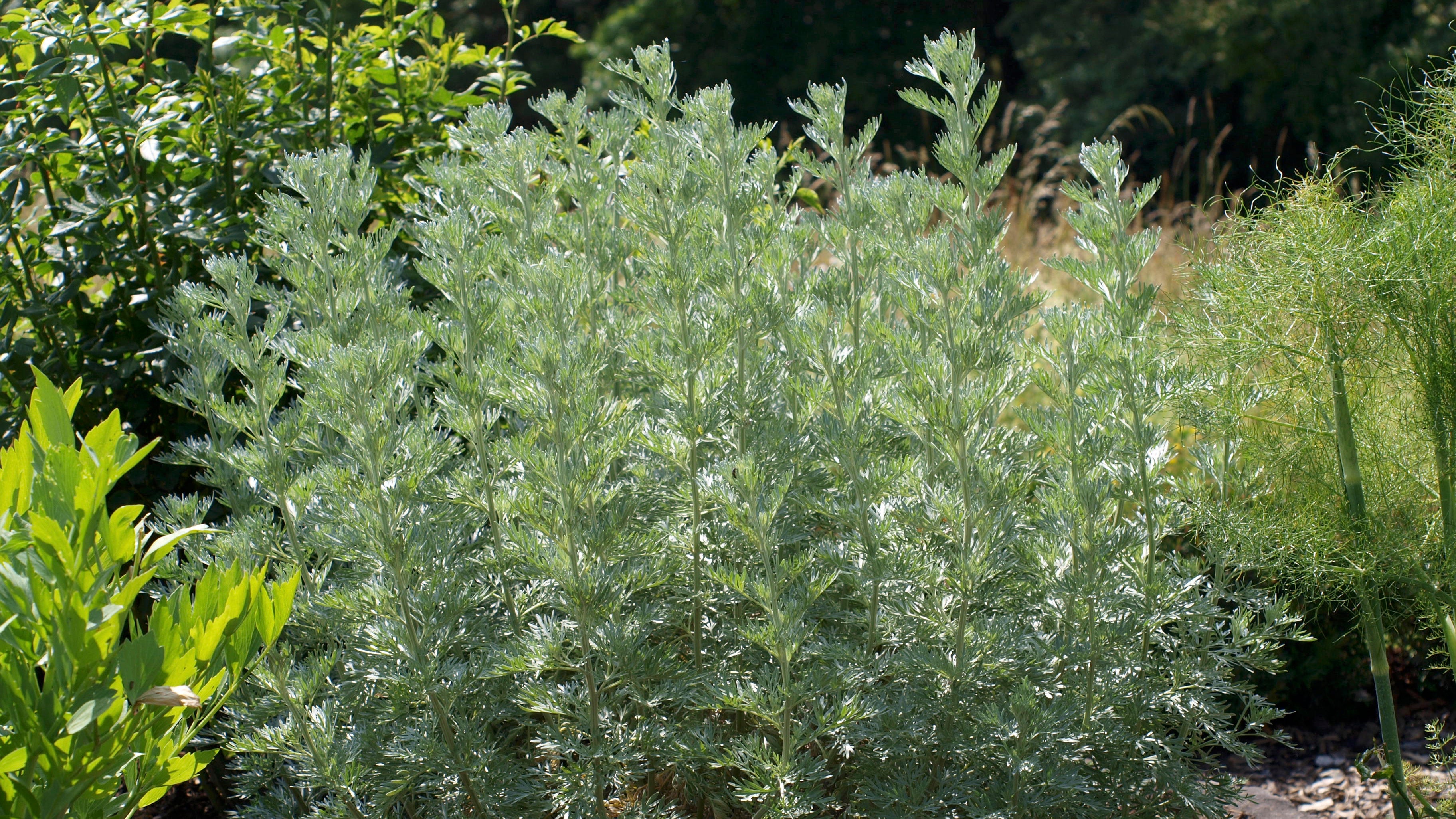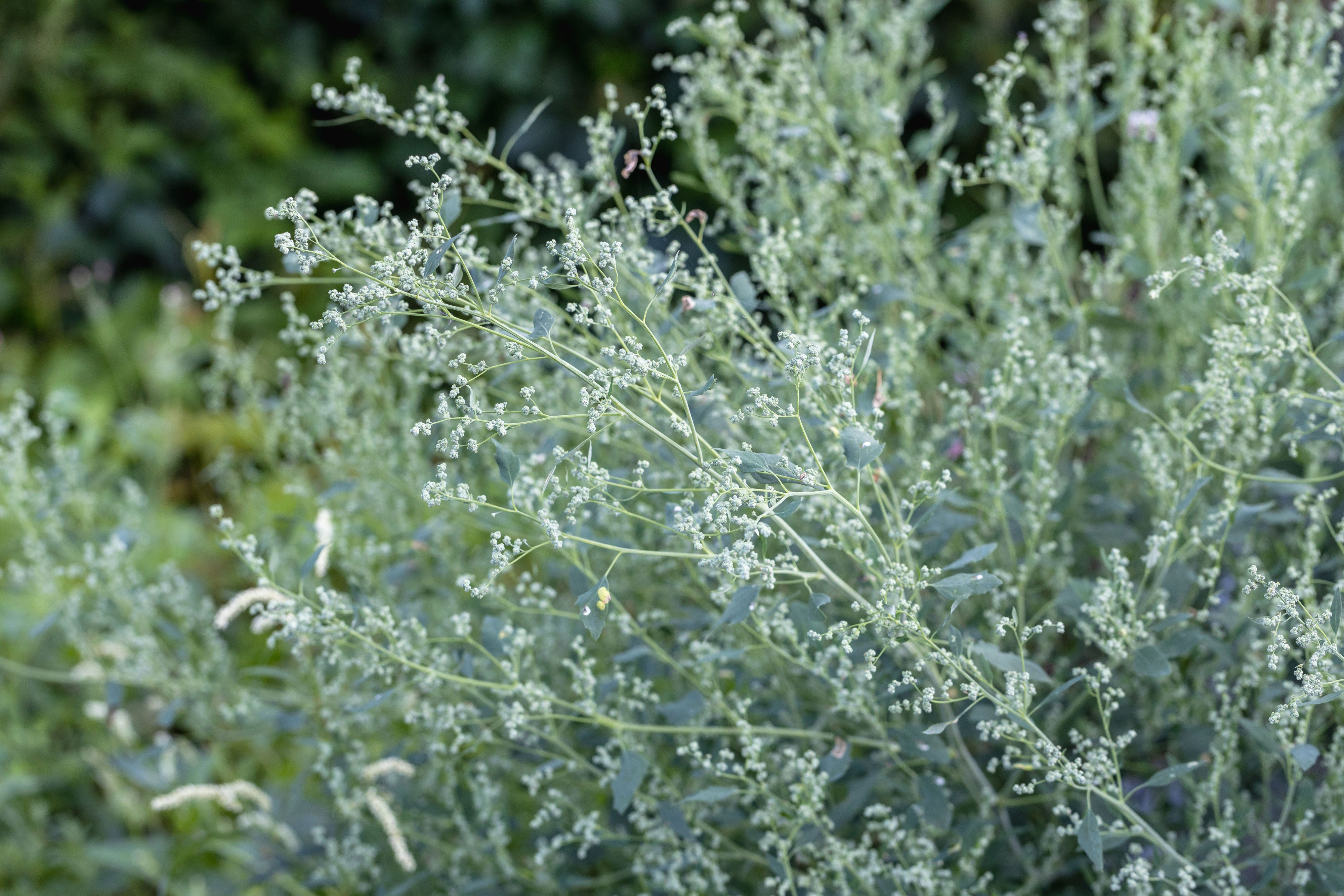
Wormwood herb
Wormwood(Artemisia absinthium) has been known for centuries for its powerful properties in naturopathy. Its antiseptic, antibacterial and anti-inflammatory effects make it a versatile medicinal herb that is traditionally used to aid digestion, promote metabolism and generally strengthen the body.
Wormwood is particularly valued for its positive effects on the gastrointestinal tract. Its bitter ingredientsnaturally stimulate the production of stomach acid, bile and digestive enzymes, which can alleviate flatulence, bloating and sluggish digestion. Thanks to its activating effect on the metabolism, wormwood can improve the absorption of nutrients and gently relieve the body.
In addition to its digestive effect, wormwood also has strong antibacterial and anti-inflammatory properties that can help the body to protect itself against infections and unwanted microorganisms. In traditional medicine, wormwood is therefore often used to promote healthy intestinal flora and to naturally support the immune system.
Wormwood also has a long tradition in gynecology. Its relaxing and antispasmodic properties can help to relieve painful menstrual cramps and regulate the menstrual cycle. Due to its warming and circulation-promoting effect, wormwood can have a supportive effect, particularly in the case of weak or absent menstruation, and gently balance the hormone levels.
Wormwood herb in medicine
Wormwood, botanically known as Artemisia absinthium, is one of the oldest and most valuable medicinal plants with a long history in naturopathy. Since ancient times, it has been valued for its strengthening, digestive and cleansing effects. Its bitter aroma, which has a positive effect on digestion and metabolism, is particularly well known.
Natural bitter remedy for stomach & digestion
A balanced gastrointestinal tract is essential for general well-being. Many people suffer from flatulence, bloating or loss of appetite. Wormwood can help here by stimulating the production of gastric juice and bile. As a result, food is digested better, the absorption of nutrients is optimized and stomach complaints are alleviated.
Its bitter plant substances (sesquiterpene lactones) have a direct effect on the digestive organs and support healthy intestinal flora. Wormwood is therefore often taken as a tea, tincture or herbal bitters to gently stimulate digestion and alleviate gastrointestinal complaints.
Support for liver, gall bladder & detoxification
The liver plays a central role in metabolism and in detoxifying the body. Wormwood is known for its liver-strengthening effect and can help to stimulate bile production. This promotes fat digestion, relieves the body and supports natural cleansing.
Wormwood can be a valuable aid, particularly in cases of bloating after fatty foods, slow digestion or bile problems. This is why it is traditionally used in herbal bitter mixtures to strengthen the body's natural detoxification ability.
Natural remedy for parasites & inflammation
Wormwood has also been used for centuries as a natural remedy for parasites and inflammation. Its antibacterial and antiparasitic effect makes it a popular ingredient in natural intestinal cleansing. In traditional medicine in particular, wormwood has been used to treat worm infestations, fungal infections and digestive problems.
Its anti-inflammatory properties also help the body to protect itself against infections and strengthen the immune system.
Wormwood in gynecology
Wormwood also has a long tradition in gynecology. It used to be used as a cycle regulator and can alleviate menstrual cramps by gently supporting the female hormone balance.
Wormwood has been used as a warming herb that stimulates the circulation, especially in cases of weak or absent menstruation. In combination with other herbs, it can help to harmonize the menstrual cycle in a natural way.

The legendary wormwood herb
Artemisia absinthium L., better known as wormwood, is one of the oldest and most versatile medicinal plants in human history. Since ancient times, the bitter-aromatic herb has been valued for its health properties and has found its place in naturopathy, mythology and even art.
The ancient Egyptians already used wormwood to aid digestion and strengthen the body. In Greek and Roman medicine, it was considered a valuable remedy for stimulating the appetite, supporting liver function and combating stomach complaints. The famous physician Hippocrates recommended wormwood to alleviate digestive disorders and women's ailments, while Dioscorides emphasized the antipyretic and deworming properties of the herb in his medical writings.
In the Middle Ages, Artemisia absinthium found its way into monastery gardens and was valued as a remedy for stomach complaints, parasites and infections. Its strongly bitter ingredients - especially absinthin and thujone - stimulate the production of bile, aid digestion and stimulate the appetite. Wormwood was also regarded as a protective herb against diseases, evil spirits and epidemics.
With the discovery of distillation, wormwood became widely known in the 19th century as the main ingredient of the famous absinthe. Artists such as Vincent van Gogh and Edgar Degas immortalized the myth-enshrouded drink in their works, while it was considered a source of inspiration for the bohemians. Despite being banned for a time due to its high thujone content, wormwood is now valued in many traditional herbal bitters and stomach elixirs.
Artemisia absinthium L. also plays an important role in modern naturopathy. Its bitter substances stimulate the metabolism, support detoxification and promote intestinal health. The herb is also valued for its antibacterial, anti-inflammatory and digestive properties.
Whether as a tea, tincture or ingredient in traditional herbal elixirs, wormwood has been a valuable plant for health and well-being for thousands of years. Its unique aroma and versatile effects make it a valued component of herbal medicine to this day.
Products that contain wormwood


